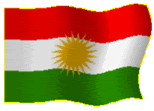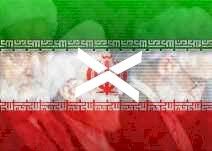![[FREE IRAN Project] In The Spirit Of Cyrus The Great Forum Index](http://www.activistchat.com/images/ActivistChatStandsLogo.jpg) |
[FREE IRAN Project] In The Spirit Of Cyrus The Great
Views expressed here are not necessarily the views & opinions of ActivistChat.com. Comments are unmoderated. Abusive remarks may be deleted. ActivistChat.com retains the rights to all content/IP info in in this forum and may re-post content elsewhere.
|
| View previous topic :: View next topic |
| Author |
Message |
Rasker

Joined: 03 Feb 2005
Posts: 1455
Location: USA
|
 Posted: Sun Jun 19, 2005 8:42 am Post subject: The Khatami Experience by Amir Taheri Posted: Sun Jun 19, 2005 8:42 am Post subject: The Khatami Experience by Amir Taheri |
 |
|
Pangloss, Nietszche, and the Khatami Experience
Friday 17 June 2005
http://aawsat.com/english/news.asp?section=2&id=471
Amir Taheri
As Iran holds its ninth presidential election today, few are likely to spare a thought for the incumbent Muhammad Khatami as he bows into oblivion.
And yet who can forget the excitement that Khatami''s first election in 1997 stirred around the world? Some Islamists saw his victory as a sign that politics and religion could mix without producing a deadly brew. At the other end of the spectrum some liberals tried to persuade themselves that even a despotic regime was not impervious to reform.
During the current presidential campaign, however, Khatami''s tenure has been used by all the eight officially approved candidates as a warning rather than a model. Radical Khomeinist candidates Ali Larijani and Muhammad-Baqer Qalibaf have spoken of the Khatami presidency as "eight wasted years" while Mostafa Moin and Mahdi Karrubi, who were in the field as candidates of the pro-reform groups, have described the outgoing president as a failure.
Outside the establishment, many Iranians see Khatami as a cynical opportunist who was assigned a certain role by the so-called " tasmimgiran "
(decision-makers) who pull the strings in Tehran .
"Khatami deceived us all," says dissident journalist Akbar Ganji.
"Khatami was a puppet activated by the ruling mullahs," says one of his former ministers on condition of anonymity.
Both views are inaccurate and unfair.
No one is deceived without wanting to be deceived, at least not twice. And yet more than 20 million Iranians voted for Khatami both in 1997 and in 2001.
Nor is there any evidence that Khatami was manipulated by the " tasmimgiran ".
The Khatami phenomenon is not unique to Iran . Other despotic systems have produced versions of it at different times.
The Khatami phenomenon emerges when a revolutionary regime which has been transformed into a despotic system feels the need to change course in order to negotiate a dangerous bend on its course. One sees a version of it in the pre-terror phase of the French Revolution when Danton and company practiced politics through oratory.
In the Bolshevik Revolution the Khatami phenomenon took the shape of the NEP concocted by Bukharin and marketed by Lenin. The version produced by the Chinese Revolution came with the slogan "Let One Hundred Flowers Blossom!" with Liu Shao-ji as front-man. In the 1960s Janos Kadar in Hungry and Alexander Dubcek in Czechoslovakia represented versions of the Khatami phenomenon.
In almost every case such phenomena ended in personal tragedy for the men involved, and greater terror and repression for society as a whole.
To be sure this does not mean that Iran is heading for greater terror and repression or that Khatami may be in personal danger. It is likely that the Iranian system is not yet done with the Khatami phenomenon and that we may see it prolonged under a new president, whoever he turns out to be, for some time yet. In other words the possibility of a Khatami- bis presidency should not be discarded.
All revolutions produce types like Khatami.
These are individuals who believe that things happen simply by wanting them to happen. The technical term for their philosophy is voluntarism which regards societies as blank sheets on which idealistic elites can draw the image of their "perfect" society. Voluntarism cannot admit that the root cause of all problems a society faces may well be the very revolution that it idealises .
"We wish to safeguard our revolution," Dubeck often insisted.
"The problem is not with socialism but its practice," Kadar liked to say.
Because idealism and optimism are twins, all versions of the Khatami phenomenon ultimately appear as real-life incarnations of Dr. Pangloss, one of Voltaire''s greatest characters.
Pangloss is hired as schoolmaster for Candid, the son of a nobleman in Westphalia . Pangloss may criticise details of life in the Baron''s castle. But, as a teacher of metaphysico-theologo-cosmolonigology , he takes delight in proving that in this best of all possible worlds, the Baron''s castle is the most magnificent of all castles, and The Baroness the prettiest of all possible ladies.
"It is demonstrable," Pangloss lectures, "that things cannot be otherwise than as they are; for as all things have been created for some end, they must necessarily be created for the best end. Observe, for instance, the nose is formed for spectacles, therefore we wear spectacles. The legs are visibly designed for stockings, accordingly we wear stockings. Stones were made to be hewn and to construct castles, therefore My Lord has a magnificent castle; for the greatest baron in the province ought to be the best lodged; and they, who assert that everything is right, do not express themselves correctly; they should say that everything is best."
Khatami , who went on 63 foreign trips to 34 countries in eight years, never quoted Pangloss. Instead he tried to impress his audiences with quotations from Hobbes, Hegel, Locke, Feuerbach, Nietzsche, and Habermas, among others, and then proceeded to tell an incredulous world that the bizarre system crated by the late Ayatollah Ruhollah Khomeini was "the perfect model of government" for the whole of mankind.
Khatami first won election with a list of 10 promises the first of which was to "restore the rule of law."
That did not happen.
His presidency witnessed the notorious chain-killings that saw the brutal murder of two dozen dissidents and intellectuals, including Dariush Foruhar, a former minister in Khomeini''s first government, and his wife Parvaneh who had their heads chopped off and displayed on the mantelpiece of the reception room in their house. Khatami promised to bring the perpetrators to justice and failed. He also failed to find and punish those who murdered Zahra Kazemi, a Canadian-Iranian photo-journalist, in the notorious Evin Prison in Tehran . Nor did Khatami lift a finger to prevent the closing of more than 100 newspaper and magazines, many of which had fought for his election, and to prevent the illegal arrests of dozens of journalists. Finally, Khatami looked the other way while the student movement, which had initially formed to back his promised reforms, was crushed and thousands of activists jailed.
Khatami''s second promise was to "revive the national economy".
That, too, has not happened. Iran is more dependent on oil revenues today than eight years ago. And, setting aside the recent rise in oil prices, the average income per head per annum is four per cent lower than 1997 in real terms.
None of all that, however, could be blamed on Khatami because under the existing constitution the president is little more than a kind of prime minister with largely ceremonial functions in an absolute monarchy .
I know I might incur the wrath of many Iranians by saying this. But
I believe that the Khatami experience was useful for Iran .
It showed that Khomeinism is incompatible with democracy and that the Islamic Republic cannot become what it was not intended to be.
Since Khatami likes to quote Nietzsche rather than any Muslim philosopher, let us also enlist the support of the author of " Thus Spoke Zarathustra".
Nietzsche says : What does not kill me, makes me stronger!
This is true of Iran at the end of the Khatami experience.
Amir Taheri
was born in Iran and educated in Tehran, London and Paris. Between 1980 and 1984 he was Middle East editor for the London Sunday Times. Taheri has been a contributor to the International Herald Tribune since 1980. He has also written for The Wall Street Journal, The New York Times, and The Washington Post. Taheri has published nine books some of which have been translated into 20 languages, and In 1988 Publishers'' Weekly in New York chose his study of Islamist terrorism, "Holy Terror", as one of The Best Books of The Year. He has been a columnist Asharq Alawsat since 1987
_________________
The Sun Is Rising In The West! Soon It Will Shine on All of Iran! Soon It Will Shine on All of Iran!  |
|
| Back to top |
|
 |
|
|
You cannot post new topics in this forum
You cannot reply to topics in this forum
You cannot edit your posts in this forum
You cannot delete your posts in this forum
You cannot vote in polls in this forum
|
Powered by phpBB © 2001, 2005 phpBB Group
|

![[FREE IRAN Project] In The Spirit Of Cyrus The Great Forum Index](http://www.activistchat.com/images/ActivistChatStandsLogo.jpg)


 Soon It Will Shine on All of Iran!
Soon It Will Shine on All of Iran! 